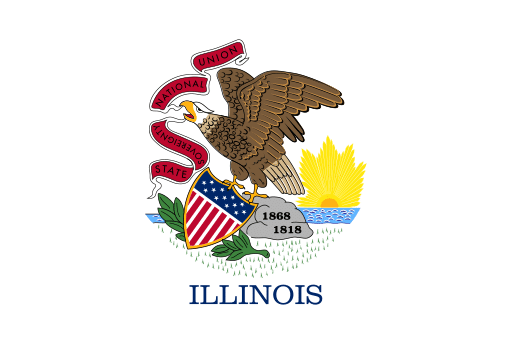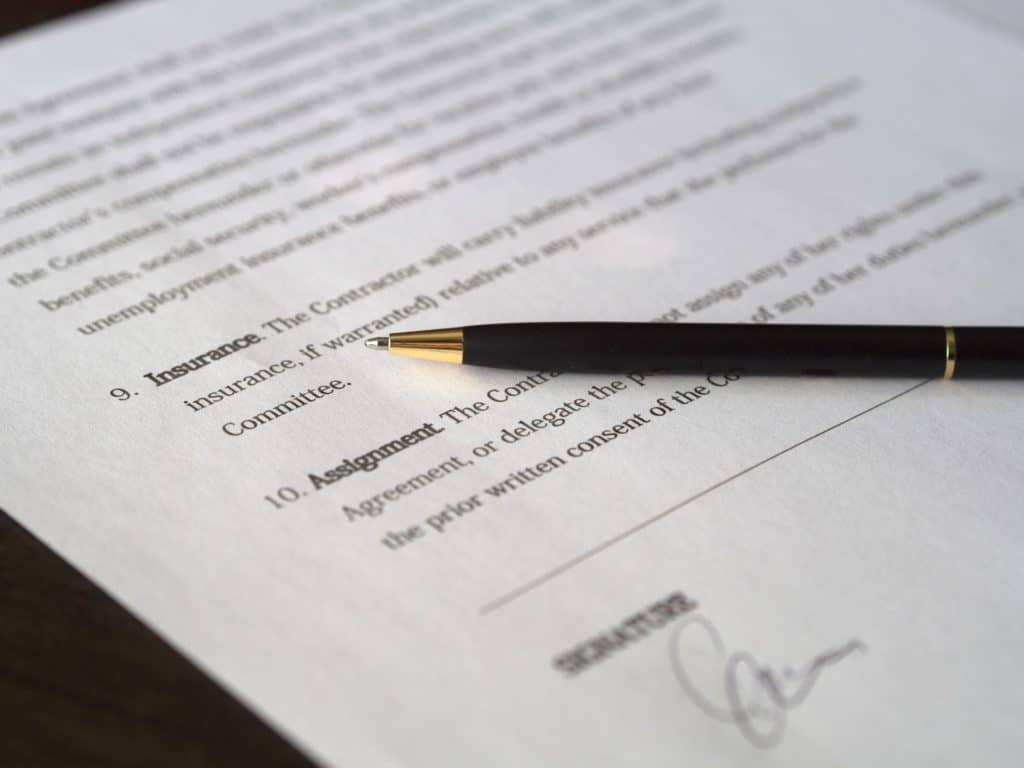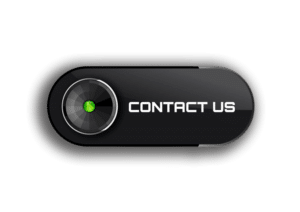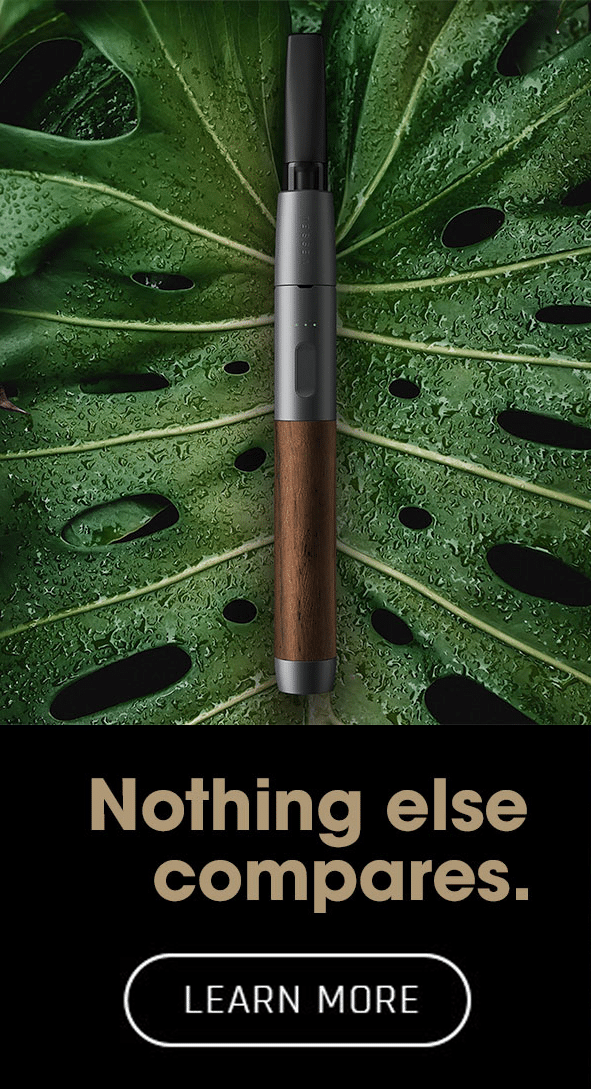How to Sell a Cannabis Business License
Table of Contents
Cannabis business licenses are extremely valuable. The license alone can be worth millions. If you are a license holder and are operating, the license is worth up to tens or hundreds of millions of dollars, depending on the license type and market. Whether you are a current cannabis license holder, plan to apply for a license, or are buying a license, this article will educate you on how to sell a cannabis business license.
Our firm, Quantum 9, specializes in helping entrepreneurs win cannabis licenses and become cannabis business owners. In our experience, many of our clients who become cannabis business owners are faced with the decision of whether they should sell their cannabis license or continue to operate their business.
Thus, I crafted this article as a guide for those seeking to sell their cannabis business license. Below, you will find a step-by-step guide from our cannabis financial consultants for how to sell a cannabis business license.
Should you sell or buy a cannabis business license?
Before we discuss how to sell your cannabis business license, let’s examine reasons to and not to sell a cannabis business license. We will also go over reasons to and not to buy a cannabis business license.
Reasons to Sell your cannabis business license
Here are a few reasons that a cannabis business owner may want to sell their licensed company:
- Quick cash;
- Lack the financing to fund the buildout and startup costs of operation;
- Lack the expertise to manage the buildout and operations of the company; or
- Don’t have the capacity to take on an additional project and manage a company.
Reasons not to Sell your cannabis license
- You want to operate and manage the cannabis company;
- Increase the value of your company before selling; or
- The State laws prohibit the sale of cannabis licenses.
Reasons to buy a cannabis business license:
- Expand into new markets;
- Increase Market Share;
- Drive revenue growth;
- Acquire cannabis business license as an investment with intentions to add value and sell for a ROI;
- Easier to buy a cannabis license than to apply for and try to win a license; or
- Add vertical integration capacity.
Reasons not to buy a cannabis license:
- If you have the technical writing resources and capacity, applying for and winning a cannabis business license is a lot cheaper;
- The type of operation falls outside of your businesses core competencies;
- The State may have laws prohibiting transferring cannabis licenses; or
- The State may have ownership limitations that you would exceed if you purchased the cannabis business license.
Now that we’ve discussed a few reasons why one should or should not sell/buy a cannabis business license, let’s now discuss the steps for selling a cannabis business license.
Step-by-Step Guide on How to Sell a Cannabis Business License
Since the cannabis industry is highly regulated, selling a cannabis business license can be a bit tricky.
However, our cannabis financial consultants have worked in over 27 US States and 6 countries, and we found that selling a cannabis business license generally follows a pattern. This step-by-step guide for selling a cannabis business license was formulated from years of cannabis industry consulting experience.
Step 1 – Determine if Selling your cannabis license is Legal
The first step is to answer the question “is selling a cannabis business license legal?”
Accordingly, each market or State has its own laws and regulations on selling or transferring cannabis licenses.
To determine if selling your cannabis business license is legal, begin by finding and reading the Act that legalized the cannabis industry in your market. More specifically, find the section of the Act regarding the sale and transfer of ownership in cannabis licenses.
You can typically find the Act by searching the governing body’s cannabis website in your market of interest. Alternatively, a simple Google search should suffice.
Additionally, our cannabis business consultants recommend reviewing the governing body’s frequently asked questions (FAQs) page on their website. You can typically find language in the FAQs describing the sale of cannabis licenses.
We understand that reading laws and regulations can be a bit complex and tiresome. For this reason, feel free to reach out to our cannabis license consultants to determine if selling a cannabis license in your market is legal.
Step 2 – Assemble a team
Selling a cannabis business license is complex and requires technical expertise. Unless you’re a financial expert with a background in law, you will want to assemble a team of advisors to orchestrate the sale of the cannabis business license.
The team will assist you in putting together an Offering Memorandum that will include details on the operations of your cannabis business, license, services, personnel, valuation, and more (read below for more information on Offering Memorandums).
Choose a team with experience in Mergers and Acquisition (M&A), especially cannabis industry M&A.
Our Cannabis Financial Consultants recommend putting together a team that includes:
- Certified Public Accountant (CPA)
- Legal Counsel
- Financial Advisor/Consultant
- Investment banker (optional)
Step 3 – Develop an Action Plan
Now that you’ve assembled a team, it’s a good time to make sure everyone is on the same page. Develop an action plan so that the entire team has a clear strategy and direction.
The Action Plan should outline the division of labor, milestones, and expected timeline to complete the deal. Most deals take approximately 6 months. However, it is possible to get to sell your cannabis business license within 60 – 90 days if you’re diligent.
Step 4 – Valuation
Once you’ve determined that selling your license is legal in your market and assembled a team, the next step is to determine a fair value for your company.
For cannabis companies, an estimated valuation can be derived from comparable transactions or a discounted cash flow analysis.
The former is preferred due to the ease and quickness of arriving at a valuation. On the other hand, the latter requires more work, financial expertise, and access to relevant data. However, the discounted cash flow method allows you to arrive at a valuation when no other comparables are available.
We recommend using both methods to cross-check yourself and arrive at a more accurate valuation for your cannabis companies.
Keep in mind macroeconomic conditions and how they may factor into your valuation.
Valuation is not an exact science
Keep in mind that cannabis business license valuation is based on both objective and subjective matters. At the end of the day, the value of the cannabis business license is based on what the buyer is willing to pay.
Since valuations are not an exact science, our cannabis financial consultants recommend arriving at a range for your cannabis company’s valuation. Unless you have a background in finance, your best option is to engage a professional to assist with your cannabis company’s valuation.
Luckily, we have cannabis financial consultants who can help you value your cannabis company. Reach out today to speak with our experts on selling cannabis business licenses.
Step 5 – Identify buyers
At this point you’ve determined a fair valuation of your cannabis business license, now you’re prepared to identify buyers.
Accordingly, you will want to determine who are the logical buyers of the cannabis business license. Put yourself in the buyer’s shoes, and ask “why the cannabis business license would be a compelling asset?”
Buyers range from multi-state operators to small business owners seeking to enter the cannabis industry.
We recommend engaging a consultant or business broker to assist in connecting you with potential parties interested in buying a cannabis business license. While they will require a fee for their services, the successful sale of your license will far outweigh the minuscule fee paid for their professional services.
Quantum 9 has a deep network of buyers who are interested in cannabis business licenses in all markets, both medical and adult-use. Give us a call to learn how we can help you sell your cannabis business license.
Step 6 – Craft the Offering Memorandum
Once you’ve identified buyers, you will want to deliver interested parties information on your cannabis business license and the proposed deal. Enter the Offering Memorandum (aka information memorandum).
The Offering Memorandum is a document that you can present to potential buyers that essentially summarizes the cannabis business license and the opportunity at hand for potential acquirers.
Put differently, the Offering Memorandum is a piece of marketing used to advertise the sale of your cannabis business license. As such, there are a few key pieces of information that potential buyers want to see. The offering memorandum should include the following information:
- Executive Summary
- Market Opportunity
- History of the company (if applicable)
- Business Overview
- Current Ownership Profile
- Property, plant, and facilities
- Competitive landscape
- Management Team overview
- Risks and Litigation
- Historical Financial Information (if applicable)
- Projected Financial Performance
- Future Growth Opportunities
- Supplemental Material
As shown above, this marketing tool is used to communicate the cannabis company’s key attributes and potential profitability. Unless you have a ton of free time or are a financial expert, you’re the best option is to engage a cannabis financial advisor to create the offering memorandum for you. Allow Quantum 9’s cannabis financial consultants to save you time and headaches.
Step 7 – Pitch your deal to the buyers
With the offering memorandum on hand, you are now prepared to pitch your deal to buyers. You have several options when it comes to pitching the sale of your cannabis business license to potential buyers. For simplicity, we will cover the three most common methods:
- Formal Auction
- Using a Cannabis Financial Consultant
- Directly reaching out to potential buyers
Our cannabis financial advisors summarize each of the three methods below.
Formal Auction
First, a Formal Auction involves sending your marketing material to many recipients, including dates for meetings with management and when the offer is due. While the auction may help you obtain a higher price, buyers are more reluctant to participate. Buyers will have to compete and pay more than anyone else in order to buy the cannabis business license in a Formal Auction.
Working with a Cannabis Financial Consultant to find buyers
On the other hand, a Cannabis Financial Consultant can help introduce you to buyers and coordinate the relationship. Additionally, a cannabis financial advisor likely has a network of buyers who are ready to buy cannabis business licenses. In fact, the cannabis financial consultant, such as Quantum 9, will have connections with Multi-state operators who are continuously buying cannabis licenses to grow revenue and expand into new markets.
Directly reaching out to buyers yourself
Lastly, the third option is to have the CEO or majority owner of the cannabis business license contact the target buyers directly. However, without an intermediary, price negotiations can often lead the deal astray due to emotional and personal reasons. That is why we recommend the best option is to use a Cannabis Financial Consultant who specializes in marijuana business licenses.
Reach out today to speak with one of our financial consultants who can help you sell your cannabis business license.
Step 8 – Draft Letter of Intent
Once you’ve developed a plan and determined the deal is a strong financial and strategic fit for both buyer and seller, it is now time to draft and sign a Letter of Intent (LOI). The buyer’s legal council drafts the LOI and your legal counsel shall review it.
The LOI is essentially an agreement that will govern the conduct and activities of the parties up until the closing of the deal. Within the Letter of Intent, it will include binding and non-binding terms that will act as a road map for the sale of the cannabis business license.
Alternatively, the parties can skip the LOI and enter directly into a definitive agreement. However, based on our cannabis financial consulting experience in mergers and acquisitions, parties tend to prefer having a written document in place that will govern the process.
There are advantages and disadvantages to having LOIs. Some advantages of having a letter of intent:
- Determines if the parties of serious and act as a soft commitment
- Outlines the key areas of the agreement
- It discourages the seller from seeking competing deals
In contrast, the disadvantages of having an LOI are:
- It can be considered a binding agreement
- You may have to publicly disclose the prospective sale if either of the companies is publicly held
Ultimately, the LOI can be used to obtain more value for the seller. With an LOI, you can be more aggressive in price negotiations.
Step 9 – Due Diligence
At this point, the buyer should conduct a deep investigation into the cannabis business license, otherwise known as Due Diligence. The goal of due diligence is to determine the cannabis business licensee’s assets and liabilities, as well as analyze its commercial potential.
There are two types of cannabis license holders:
- Current operators; and
- Those who hold a license but have not begun their operations.
When it comes to selling a cannabis business license, the due diligence process differs for those two types of license-holders.
For the cannabis license holder who has not begun operations, the due diligence process is fairly straightforward. The buyer needs to determine if selling the cannabis license is legal and if they qualify for purchasing the license. In regards to qualifying, buyers will likely have to undergo a criminal background check and must not exceed the ownership limitations in the State.
In addition, the buyer will have to determine if the decision-makers on the seller’s team are okay with selling the license and if the seller’s team wants to remain with the company post-acquisition.
On the other hand, for license-holders who are currently operating, the due diligence process is more in-depth. In short, the due diligence process involves a legal, financial, and strategic review of all of the seller’s:
- documents,
- contractual relationships,
- operating history, and
- organizational structure.
The buyer is essentially looking under the hood of the business and making sure that the value proposed at the price is indeed reflected in the company.
As the seller, you must organize all documents related to the purchase and make the data available for review to the appropriate parties. Additionally, while selling your cannabis business license, you must remain open and willing to answering all of the buyer’s questions during due diligence.
Step 10 – Structuring the Deal
Structuring the deal is an art and a science. The number of ways to structure a deal is infinite. However, one thing remains true, the structure of the deal must be fair and meet the objectives of both the seller and the buyer.
For those who think finance is stiff and anti-art, a great deal of creativity is needed to structure the right deal. Often, creativity is needed to achieve a particular strategic goal, including tax advantages.
In short, here are a few key issues impacting the deal structure:
- How will assets be transferred from seller to buyer?
- What price the assets will be transferred at?
- What are the terms governing the transfer of assets?
- How will issues uncovered during due diligence impact the price?
- What liabilities will the buyer assume?
- How will taxes effect the buyer and seller?
- What will the sellers role be in the business upon sale?
- Are there third-party consents that are required?
- Does the buyer have access to the total funds needed for the purchase or does the buyer need to raise funds?
Many types of corporate and securities laws will influence the structure of the deal. Nevertheless, every deal comes down to a few basic questions:
- Will the buyer be purchasing the stock or the assets of the company?
- Will the buyer pay the price all upfront or payable overtime on an installment basis?
- What will the payment consist of (e.g. cash, notes, securities, etc.) ?
- Is the purchase price fixed or is it contingent upon certain events, such as revenue milestones?
- What are the tax consequences of the proposed transaction?
The key here is to ensure the seller and buyer’s needs are met.
Step 11 – The Purchase Agreement
At this point, the buyer has conducted due diligence, valuation of the cannabis business license has been conducted, and financing is secured. Now, the buyer and their legal team will draft the purchase agreement, which is the legal document that will finalize the deal.
The Purchase Agreement will outline key terms of the transaction involving the sale of the cannabis business license. Similarly, the purchase agreement will include the plan and rules for each team’s involvement in the future of the business.
Additionally, the purchase agreement will include:
- the seller’s representations and warranties;
-
the terms of the seller’s indemnification of the buyer;
-
the responsibilities of the parties during the time period between the execution of the purchase agreement and the actual closing (if not simultaneous);
-
the terms and structure of payment;
-
the deferred or contingent compensation components; and
-
any predetermined remedies for breach of the contract.
As the seller, you will want your legal counsel to review the purchase agreement. If both parties agree and sign the purchase agreement, then you have successfully sold your cannabis business license.
Step 12 – Transfer the License
Upon executing the purchase agreement, the buyer will apply to the State’s cannabis department to transfer ownership of the license. Each State is unique in its rules regarding the transfer of cannabis business licenses.
Most commonly, the State will want to run a background check on the buyer to ensure no criminal background. Additionally, the State will check to see if the buyer would exceed any license ownership limitations. For instance, in some States, such as Illinois, an owner is limited to 10 adult-dispensary licenses.
At this point, the buyer may have to pay a license fee to the State and any outstanding debt that the License holder may have with the State. Similarly, if the previous license holder was a Social Equity applicant and the buyer is not, then the buyer will have to pay any previously waived fees under the social equity program.
Once transferred, you have successfully sold your cannabis business license. Do you have any questions about the process outlined in the step-by-step guide on how to sell your cannabis business license? If so, please reach out to our cannabis financial consulting team to have your questions answered. We can help you sell your cannabis license.
Laws governing how to sell a cannabis business license in specific markets
At this point, you’re familiar with the process of selling your cannabis business license. However, as eluded to earlier, each US State has their own laws and regulations that dictate the sale of marijuana business licenses.
In this section, our cannabis financial consultants break down the laws governing selling a cannabis business license in various U.S. States.
Illinois
How to sell an Illinois Cannabis Business License

Can you sell your cannabis business license in Illinois? The answer is yes. We will describe the laws and processes governing how to sell a cannabis business license in Illinois.
To begin, the rules for the transfer, sale, or change of ownership in Illinois cannabis licenses differ for each type. Nevertheless, one rule remains true for selling all types of Illinois Cannabis Business Licenses.
That is, if you’re a Social Equity Applicant who wants to sell their Illinois cannabis license, you will have to pay fees. For more information on what Social Equity is in Illinois and Cannabis Licensing in general, check out this article written by our Illinois Cannabis License Consultants.
More specifically, in the event a Social Equity Applicant seeks to transfer, sell, or grant a cannabis business establishment license within 5 years after it was issued to a person or entity that does not qualify as a Social Equity Applicant, the transfer agreement shall require the new license holder to pay an amount equal to:
- Any fees that were waived by any State agency based on the applicant’s status as a Social Equity Applicant, if applicable;
- Any outstanding amount owed by the Qualified Social Equity Applicant for a loan through the Cannabis Business Development Fund, if applicable; and
- The full amount of any grants that the Qualified Social Equity Applicant received from the Department.
Selling an Illinois Adult-Use Dispensary License
Now, let’s discuss how to sell an Illinois Dispensary License. In summary, you can only sell your Illinois dispensary license upon approval for the final license.
At this point in time (9/13/2021), all successful applicants chosen during the lottery were awarded conditional licenses. Current holders of conditional licenses must obtain a site, have the department inspect it, and pay the registration fee ($30,000 – $60,000) within a 180 days to obtain a final dispensary license in Illinois.
Afterward, final dispensary license holders can apply to the department to sell their licenses and will have to pay any fees waived if they were Social Equity Applicants.
Keep in mind that you can only have ownership in up to 10 dispensary licenses in Illinois.
Selling an Illinois Cannabis Craft Grower License
Similarly, we will explain how to sell an Illinois Cannabis Craft Grower License. First, the Act prohibits anyone from selling their Illinois Craft Grow License prior to December 21, 2021. After this date, you can sell your Illinois Craft Grow license. If you’re a social equity applicant selling to a non-social equity qualified party, you will have to pay any waived fees and any outstanding amount owed to the Department.
To speak with one of our Illinois Cannabis Consultants who specialize in cannabis mergers and acquisition, please feel free to reach out. Our cannabis financial consultants are happy to help you sell or buy an Illinois marijuana license.
New Jersey
How to sell a New Jersey Cannabis Business License

Here, we will describe how to sell your cannabis business license in New Jersey. To begin, you are allowed to sell your New Jersey Adult-Use Cannabis Business License. However, there is a fee you must pay and certain time restrictions.
If you transfer more than 50% of the ownership of your license, you must pay a $20,000 fee.
For at least two years after commencing operations, an annual license-holder cannot make any changes to more than 50% of its ownership interest.
Important to note, the majority share of diversely owned business, social equity business, impact zone business, or microbusiness shall remain the same until two years after the commencement of cannabis business operations.
For a microbusiness, you are not allowed to sell or transfer the license (however, you can apply to convert to a standard cannabis business license, which would then allow you to sell).
New York
How to sell a New York Cannabis Business License

Now, let’s discuss how to sell a New York Cannabis License.
First, the board may wholly prohibit and/or prescribe specific criteria under which it will consider and allow limited transfers or changes of ownership, interest, or control during the registration or license application period and/or up to two years after an approved applicant commences licensed activities.
In other words, our New York Cannabis Consultants interpret this as license holders are guaranteed the ability to sell their license after 2 years.
However, there is a chance that you can sell your license during your first two years, depending on the final rules not yet published.
On the other hand, licenses issued to Social and Economic Equity Applicants shall not be transferred or sold within the first three years of issue, except to a qualified social and economic equity applicant and with the prior written approval of the board.
In the event a social and economic equity applicant seeks to transfer or sell their license at any point after the issue, and the transferee is to a person or entity that does not qualify as a social and economic equity applicant, the transfer agreement shall require the new license holder to pay to the board any outstanding amount owed by the transferor to the board as repayment of any loan issued by the board as well as any other fee or assessment as determined by the board.
As a reminder, New York has not yet published the final rules regarding the sale of cannabis business licenses. But our New York marijuana consultants will update this section immediately upon release.
Connecticut
How to sell a Connecticut Cannabis Business License

Yes, you can sell your cannabis business license in Connecticut. However, Social Equity Applicants have time restrictions on when they can sell.
In short, Social Equity Applicants cannot sell or change the ownership of their adult-use cannabis license for a period of 3 years following the issuance of their final license.
However, Social Equity Applicant can sell or change the ownership of their cannabis business license in Connecticut if:
- an owner died; or
- has a condition, including, but not limited to, a physical illness or loss of skill or deterioration due to the aging process, emotional disorder or mental illness that would interfere with the backer’s ability to operate.
Conclusions on How to Sell A Cannabis Business License
After reading this article, you should now know how to sell a cannabis business license. While it may seem like a complex and lengthy process, the fruits of your labor are well worth the effort. Selling your cannabis business license for tens to hundreds of millions of dollars is your opportunity to create generational wealth.
Reach out today to speak with our cannabis financial consultants on how to sell your cannabis business license.
*Disclaimer: This is not investment advice and I am not a professional Investment or Financial Advisor.
Related articles on How to Sell a Cannabis Business License
Upcoming Cannabis License Application Opportunities
New York Cannabis License Consulting
Cannabis Consulting in New Jersey









